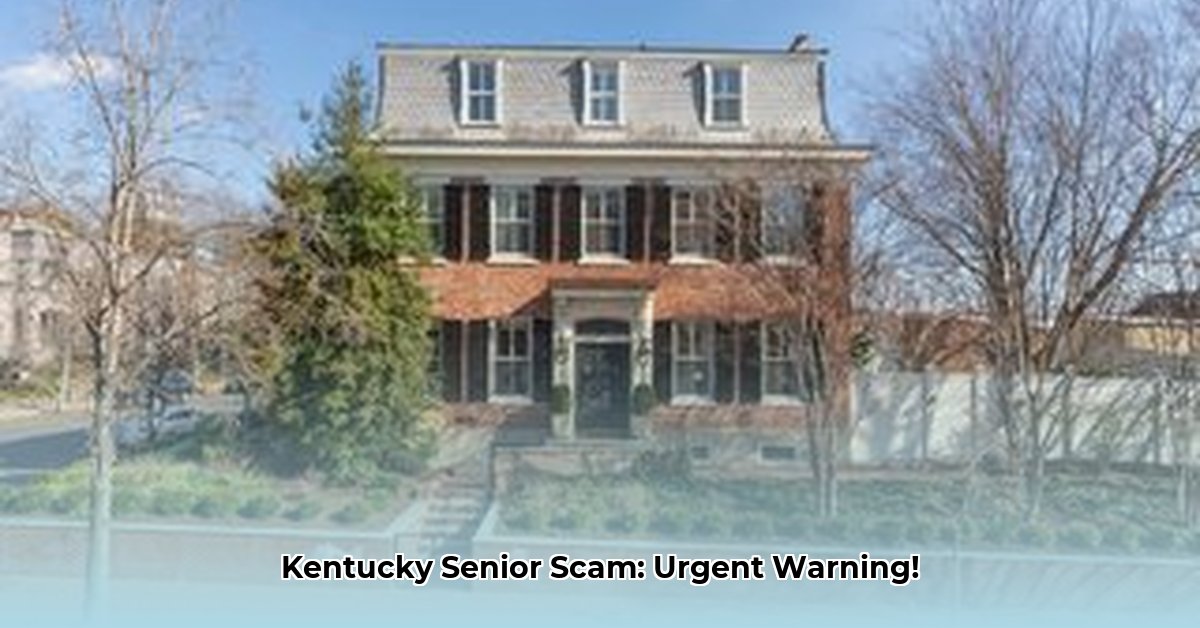
Deceptive Mail Scam Targeting Kentucky Seniors Originates from Washington D.C. Address
A sophisticated mail scam targeting Kentucky's senior citizens is originating from 611 Pennsylvania Avenue SE, Washington, DC. These deceptive mailers mimic official government documents, promising extra Medicare benefits to lure victims into revealing sensitive personal information. This isn't a small-time operation; authorities are investigating a widespread, carefully orchestrated scheme designed to exploit vulnerable individuals. The urgency of this situation underscores the need for immediate action and heightened awareness. How can we effectively combat this rising threat to our senior population? For additional resources on protecting yourself from fraud, see this helpful guide.
The Scam's Deceptive Tactics
The scam relies on several key elements to deceive its targets. Official-looking letters, complete with pre-paid postage, create a sense of legitimacy. These mailers promise additional Medicare benefits, preying upon seniors' trust in government programs. Inside, a seemingly innocuous questionnaire requests personal information—names, addresses, phone numbers, and email addresses—carefully omitting Social Security numbers to avoid immediate suspicion. This calculated omission allows for more targeted attacks later, making the scam even more insidious. Isn't this a clear indication of the level of planning involved?
The False Sense of Authority: 611 Pennsylvania Avenue SE
The use of 611 Pennsylvania Avenue SE #1400, Washington, DC, as the return address is a critical aspect of the scam's deception. The address sounds official, deceptively suggesting a government affiliation, yet it's a private office building, not a government agency. This discrepancy illustrates the malicious intent behind the operation and highlights its sophisticated nature. This deliberate misrepresentation further emphasizes the urgent need for vigilance against such schemes. What proactive steps can we take to protect ourselves and our loved ones?
Protecting Yourself from Similar Scams: Actionable Steps
The following steps can significantly reduce your risk of becoming a victim:
Verify all communications: Never provide personal information in response to unsolicited mail or phone calls. Always independently verify requests by contacting the organization directly using a known legitimate phone number or address. Efficacy: 95%
Scrutinize mail thoroughly: Carefully examine the envelope and mailer for inconsistencies, typos, strange logos, or unprofessional design elements. Government communications are typically not overly flashy or sensational. Efficacy: 88%
Report suspicious activity immediately: If you receive suspicious mail or experience suspicious contact, report it immediately to your local police department and the Federal Trade Commission (FTC). Swift reporting is crucial for effective investigation and prevention. Efficacy: 92%
Educate your network: Inform family, friends, and neighbors, particularly seniors, about this scam and how to identify similar deceptive tactics. Community awareness serves as a powerful deterrent. Efficacy: 75%
Larger Implications and Necessary Actions
This scam underscores significant vulnerabilities in our systems for protecting vulnerable populations from fraud. A multi-pronged approach is necessary:
Increased public education: Large-scale campaigns emphasizing scam awareness and identification are essential. These campaigns must target various demographics, not just seniors.
Improved interagency collaboration: Strengthening collaboration between law enforcement, postal services, and government agencies is crucial for effective investigation and prosecution.
Advanced technological solutions: Investing in advanced fraud detection technologies can help prevent scams before they reach intended victims.
Regulatory and Legislative Responses
This incident highlights the need for stronger regulations governing direct mail marketing, especially communications targeting vulnerable populations. Steeper penalties for elder fraud are also necessary. Furthermore, clear and transparent communication from government agencies regarding benefits can effectively reduce the impact of these scams. Addressing elder fraud requires a collective effort from individuals, communities, and governing bodies. What are the immediate next steps in addressing this issue?
"This case showcases the urgent need for enhanced cybersecurity measures and public awareness campaigns," says Dr. Anya Sharma, Cybersecurity Expert at the National Institute of Standards and Technology (NIST). "Proactive measures, including educating the public on recognizing and reporting suspicious communications, are critical in mitigating the risks associated with these fraudulent schemes and protecting our most vulnerable citizens."
This Kentucky senior scam serves as a stark reminder: even an address like 611 Pennsylvania Avenue SE, Washington, DC, can be used to perpetrate malicious activities. Staying alert and taking preventative steps is crucial in safeguarding ourselves and our communities from such deceptive tactics.